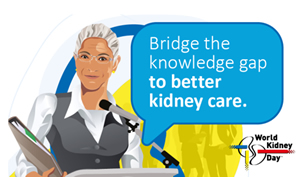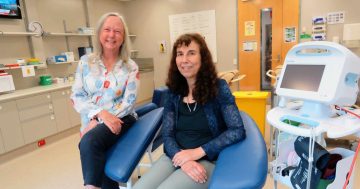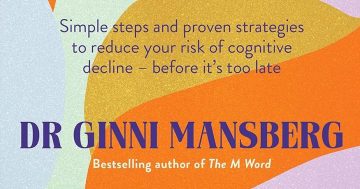 People across the country are being encouraged to learn how to keep their kidneys happy and healthy following World Kidney Day last week (10 March).
People across the country are being encouraged to learn how to keep their kidneys happy and healthy following World Kidney Day last week (10 March).
Marking the Day the Australian Deputy Chief Medical Officer, Michael Kidd took to a short video and delved into how the organs functioned and problems people should look out for.
“Your kidneys are there to filter and remove waste from your body,” Professor Kidd said.
“Each minute, about a litre of blood passes through your kidneys and is filtered and your kidneys remove waste products and fluid from your blood and that becomes urine, which is then passed from your body,” he said.
Professor Kidd said kidneys also played an important role in producing and monitoring some hormones, controlling the level of fluids in the blood stream and controlling the levels of salt and other chemicals in the blood.
He said the signs that someone may be becoming unwell with kidney disease included becoming tired and weak, swelling – particularly of the feet – a persistent change in the colour of urine and developing dry or itchy skin.
“These are all signs of kidney failure and if you develop kidney failure, obviously this needs to be treated otherwise you can become very seriously unwell,” Professor Kidd said.
“You can lose up to 90 per cent of the function of your kidneys before you start to get changes, indicating that you have serious kidney disease so it is very important to know what the risk factors are for developing kidney disease.
“There are two major risk factors: Diabetes and hypertension, or high blood pressure,” he said.
Professor Kidd said it was important to pick up any kidney problems as early as possible because often, appropriate treatment could prevent issues from deteriorating or could lead to improvements in kidney function.
He said the things that people would normally do to keep themselves healthy and well could also help keep their kidneys healthy, including maintaining a healthy diet; drinking lots of fluids; not becoming dehydrated; doing some exercise every day; not smoking; and only a moderate use of alcohol.
Professor Kidd said anyone wanting to know if their kidneys were at risk should make use of the risk assessment module on Kidney Health Australia’s (KHA) website.
The KHA’s Kidney Risk Test can be accessed at this PS News link.











